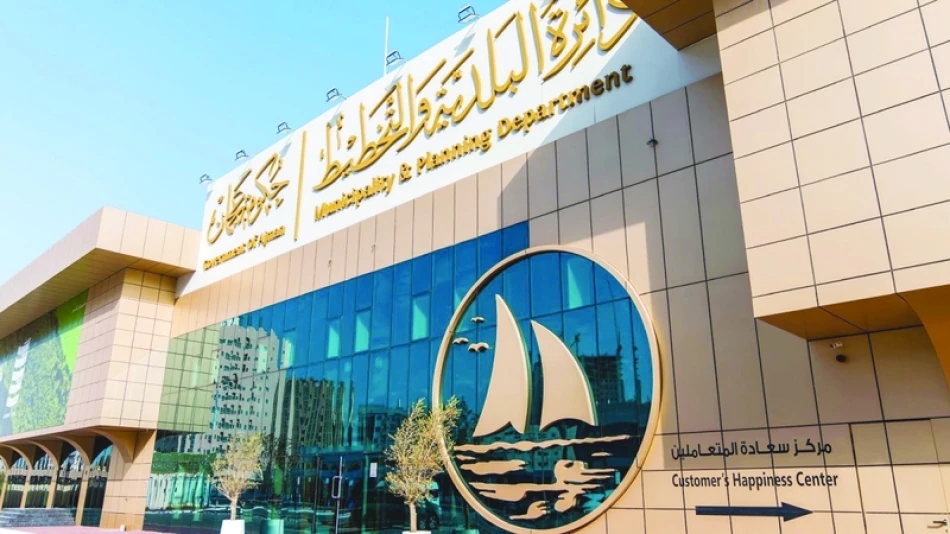
Comprehensive Health and Safety Plans Unveiled in Ajman Ahead of New Academic Year
Ajman Launches Comprehensive School Safety Initiative Ahead of New Academic Year
The Ajman Municipality and Planning Department has completed extensive preparations for the upcoming school year, implementing a multi-layered safety framework that goes beyond basic health protocols to include food safety certification, environmental monitoring, and traffic management. The comprehensive approach signals the UAE's continued emphasis on educational infrastructure quality as competition intensifies among emirates to attract families and international schools.
Food Safety Takes Center Stage
Dr. Khalid Moeen Al Hosani, Executive Director of the Public Health and Environment Sector, announced that the department has certified food suppliers for schools through its dedicated food vendor accreditation service. This move addresses growing parental concerns about school meal quality that have emerged across the Gulf region in recent years.
The initiative includes training school canteen operators on best health practices and implementing a periodic analysis program for school food samples at no charge. This free testing approach contrasts with fee-based systems in other jurisdictions and demonstrates Ajman's commitment to removing financial barriers to food safety compliance.
Beyond Basic Compliance
The food safety measures extend to comprehensive facility inspections conducted in coordination with strategic partners. School swimming pools must now meet certified health and safety standards, while indoor air quality measurements are being conducted in classrooms and school laboratories—a practice that gained prominence during the COVID-19 pandemic but is now being institutionalized.
Environmental and Pest Control Integration
Ajman's approach includes integrated pest control and management programs around school perimeters, addressing a common issue in the region's climate where rapid urban development often creates pest management challenges. This proactive stance reflects lessons learned from other UAE emirates where reactive approaches proved costlier and more disruptive to educational activities.
The department has also launched periodic awareness and educational programs covering public health, food safety, and environmental protection in collaboration with educational institutions and strategic partners. This community-wide approach mirrors successful models implemented in Singapore and parts of the United States, where school safety is treated as a broader community responsibility.
Traffic Safety Enhancements
Recent infrastructure improvements include additional warning signs to reduce vehicle speeds in school zones. While seemingly basic, this measure addresses a critical safety concern in rapidly developing areas where new residential communities often lack mature traffic patterns around educational facilities.
Strategic Implications for Educational Competition
These comprehensive safety measures position Ajman competitively within the UAE's educational landscape, where emirates increasingly compete to attract international schools and expatriate families. Dubai and Abu Dhabi have set high standards for educational infrastructure, making comprehensive safety protocols essential for smaller emirates seeking to differentiate themselves.
The integrated approach—combining food safety, environmental monitoring, pest control, and traffic management—suggests a maturing understanding of what constitutes a truly safe educational environment. This holistic framework could serve as a model for other developing regions where educational safety initiatives often focus on single issues rather than comprehensive risk management.
For international school operators and educational investors, Ajman's proactive stance reduces compliance uncertainty and operational risks, potentially making the emirate more attractive for future educational investments.
Most Viewed News

 Sara Khaled
Sara Khaled






